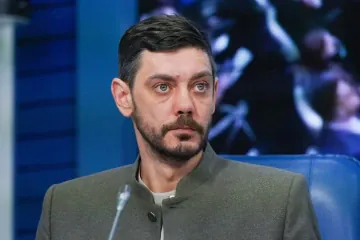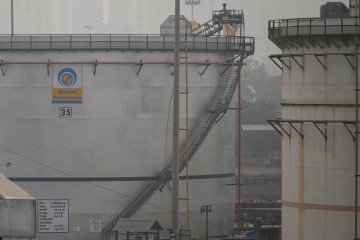- Category
- Latest news
Russian Companies Target Mariupol and Other Occupied Ukrainian Territories for Labor Recruitment
-dcba545fe92659a9729046ea029ddfe4.jpg)
Russian companies have been expanding into the occupied regions of Ukraine for two years, with businesses from various sectors setting up operations. While many focus on construction, a range of industries, including travel agencies, beer producers, and retail call centers, have also entered the “new” market. A report by St. Petersburg-based publication Bumaga, reveals details of the conditions for workers employed in these regions.
Employees sent to work in the occupied areas are not informed of the dangers they might face, such as shelling or uncleared mines. Moreover, salaries in these regions are significantly lower than in Russia.
Igor, a builder who worked in Mariupol and Donetsk, describes the stark reality of the war-torn cities: “Mariupol was destroyed by artillery… Factories are gone, and the only work left is in shops and construction.”
Despite Russian authorities’ promises to quickly rebuild cities like Mariupol—where the UN reported 90% of high-rise buildings were destroyed—progress has been slow. By March 2023, more than a thousand structures were reportedly restored, though exact figures are lacking. Construction firms from various regions of Russia, including St. Petersburg, are responsible for this work.
As of 2024, the labor market in the Ukrainian occupied territories has expanded to include industrialists, insurance companies, and beer producers. Bumaga found that 22 companies from St. Petersburg were actively hiring, with 121 job postings in August and early September. Among them is UEC-Klimov, a sanctioned Russian company that produces engines for aircraft, rockets, and sea vessels, and has posted numerous vacancies in the occupied settlement of Snizhne.
Construction companies like SPK Zeleniy Gorod and R-Vakhta are also actively hiring, seeking builders, forklift drivers, and machine operators. However, some job seekers feel deceived by employers. Remote employees and workers on-site report instances of non-payment, with one recruitment specialist stating that the company Prom-SK hired him to search for personnel in Mariupol but failed to pay him.
Additionally, breweries like Baltika are hiring sales representatives in places like Mariupol and Melitopol. Insurance companies, such as Gaide, are also establishing branches in cities like Donetsk, Berdiansk, and Yenakiieve.
Despite the risks, salaries in the occupied territories remain low, averaging 78,000 rubles (800) per month—far less than many workers expect, and lower than what is offered in many Russian regions. Managerial positions offer slightly better pay, averaging 115,000 rubles ($1,180). Positions such as surveyor engineers in Luhansk have salaries of up to 300,000 rubles ($3,090), while some specialized roles, like machine operators, can receive around 400,000 rubles ($4,120).
Some, like Igor, express disappointment in the compensation, noting that they can earn more within Russia. For others, like the widow of a worker killed in the region, the financial arrangements are vague, with only a portion of the salary being paid officially and the rest off the books.
Additionally, many workers hired by St. Petersburg companies are not from the city itself but from other regions like Krasnoyarsk, Russia. This has raised concerns about worker exploitation, as some companies, such as “Lider Group,” have been accused of failing to support the families of those who died in the line of duty.
Ultimately, the labor market in the occupied territories remains a gray area, fraught with risks for employees, while the companies that operate there continue to profit from the ongoing war.
In May 2022, Russia seized control of Mariupol following a devastating three-month siege that resulted in significant loss of life. Estimates of casualties vary, with Mariupol advisor Petro Andriushchenko citing around 25,000 fatalities, while Dmytro Zabavin, deputy of the Mariupol City Council, suggests the figure may be as high as 100,000.
In early 2024, the Russian propagandist project “Mirnye” (“Peaceful”) highlighted in a film the “unconventional real estate market” in which wealthy Russians saw a “profitable investment opportunity” as reconstruction efforts in the city began.
-ba02b3bc86f0b624f99115809a6a34d0.jpg)



-111f0e5095e02c02446ffed57bfb0ab1.jpeg)


-72b63a4e0c8c475ad81fe3eed3f63729.jpeg)
